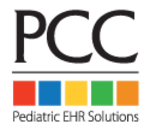| Product | |||
|---|---|---|---|
| Review & Ratings |
No reviews available |
No reviews available |
|
| Description |
PCC (Pediatric Comprehensive Care) is an advanced electronic medical records (EMR) software specifically designed for pediatric practices. This robust platform streamlines patient management by providing healthcare providers with tools to document visits, track immunizations, and manage chronic conditions effectively. PCC features a user-friendly interface that allows quick access to patient infor... Read more about PCC |
Jane is a user-friendly appointment scheduling software designed to help businesses streamline their booking processes and enhance client management. This comprehensive platform offers a suite of tools that facilitate online booking, calendar management, client communication, and reporting, ensuring organizations can operate efficiently. Jane’s intuitive interface allows users to manage appointm... Read more about Jane |
|
| Free Trial |
Available |
NA |
|
| Starting Price |
$54 Per Month |
||
| Category Features | |||
| Other Information | |||
| Deployment | Cloud Hosted , On-Premise | Cloud Hosted | |
| Devices Supported | Web-Based, Windows, Linux | Web-Based, | |
| Pricing Model | Contact Vendor | Flat Rate | |
| Support | 24x7 Support | Email, Phone, Chat, Knowledge Base, FAQs/Forum | |
| Target Company Size |
Self-Employed,
Small-Business,
Midsize-Business,
|
Self-Employed,
Small-Business,
Midsize-Business,
|
|

